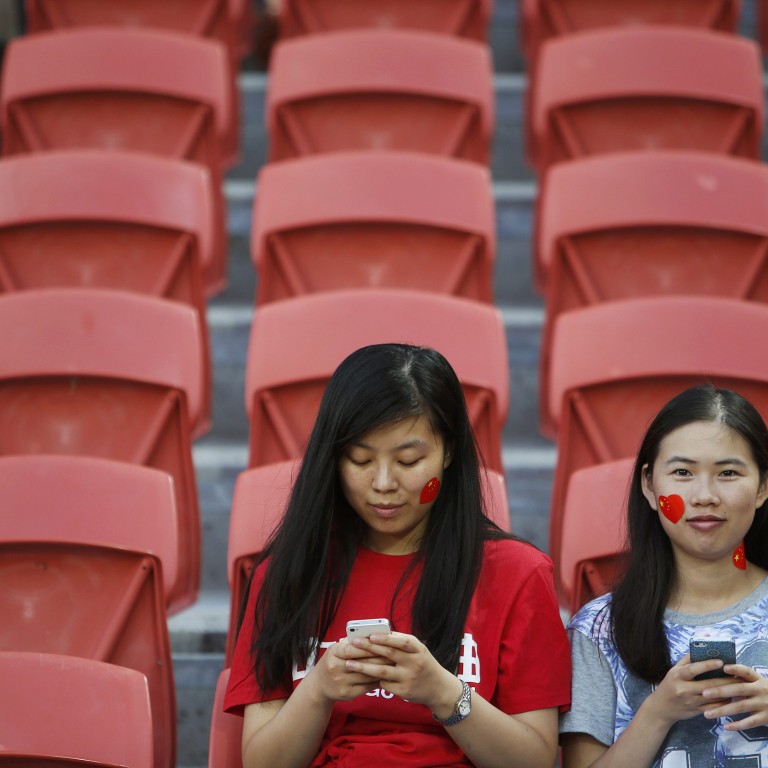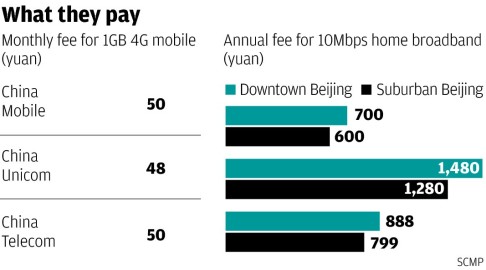
China's telcoms heed premier Li Keqiang's call to slash internet fees
Mobile data costs to drop by at least 20pc after premier urges firms to trim charges
Access to the internet is about to get cheaper - and hopefully faster - for millions of mainlanders with the launch of new charges from the country's big three mobile and telecom operators.
Under the plans announced yesterday, China Unicom will cut mobile data fees by 20 per cent, China Mobile will reduce charges by more than 35 per cent, and China Telecom will slash unit bandwidth fees by 35 per cent.
The overhaul is in response to Premier Li Keqiang's call on Wednesday to ramp up internet speeds and cut charges for subscribers to promote innovation and entrepreneurship.
Li said providers should aim to increase speeds for urban users by 40 per cent.
"China is the world's biggest mobile phone market, but internet speeds are ranked worse than 80th in the world. Our information infrastructure is backward," he said.

Shang Bing, deputy minister of the Ministry of Industry and Information Technology, yesterday said the aim was to ensure that all users had access to 4G mobile services. "Through the efforts of all parties, everyone can enjoy a much higher level of broadband service," Shang said.
The target for blanket coverage was first aired in March when Li introduced the "Internet Plus" policy in the government work report. The strategy calls for the integration of mobile internet, cloud computing and big data; and development of e-commerce, industrial networks and internet banking.
Kitty Fok, head of China for market research firm IDC, said the cuts in fees were in line with the state policy and were likely to be profitable.
"A challenge in the future will be how to technically increase internet speeds for the growing number of users," Fok said.
The mainland has more than 630 million internet users and 570 million mobile subscribers, according to a Ministry of Industry and Information Technology report last year.
But the services are not cheap. Urban users, who earn about 2,000 yuan (HK$2,536) to 4,000 yuan a month, pay about 100 yuan for broadband and 50 yuan for 1GB of mobile data per month.
South Korea led the world with average internet speeds of 25.3Mbps last year, according to US cloud services firm Akamai Technologies. Hong Kong was second with 16.3 Mbps, and Japan third with 15 Mbps. The mainland's average was 4.25 Mbps.
The State Council launched its "Broadband China" strategy in 2013 to increase internet speeds, and in the two years since, mobile data fees have fallen by 60 per cent, and broadband fees by 30 per cent, according to official data.
If all goes to plan, subscribers in the country's main urban centres will have access to 100Mbps fibre optic connections by 2017.
Internet speeds will be faster than 30Mbps for broadband users in major cities and at least 20Mbps for users in other areas. And 80 per cent of rural areas will have access to fibre optic links.

